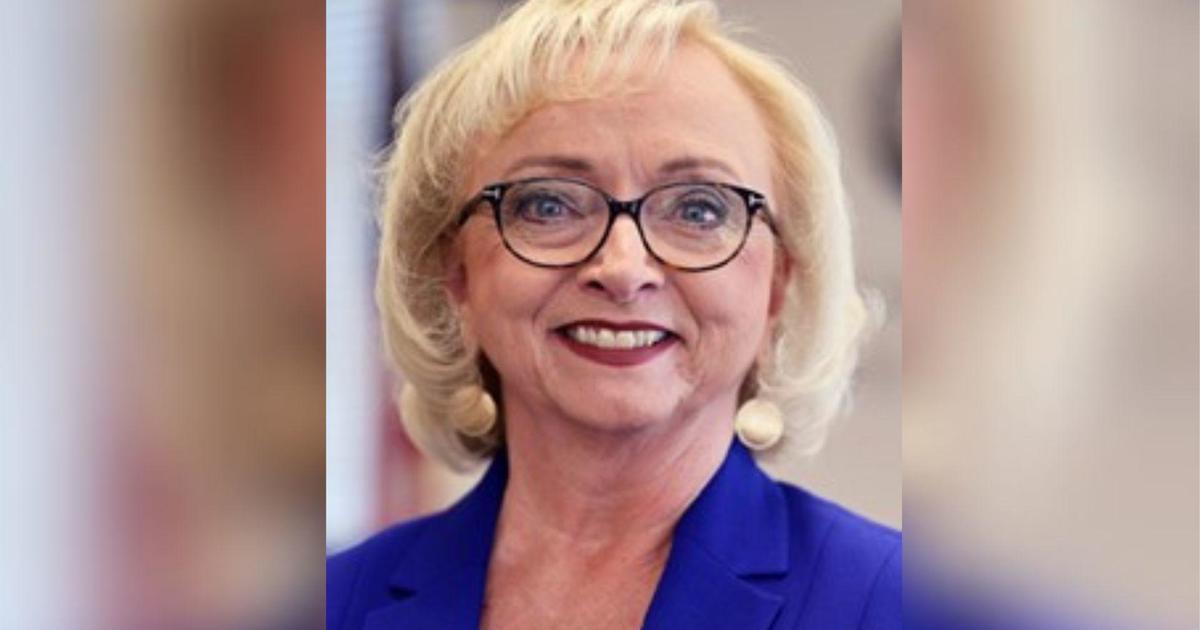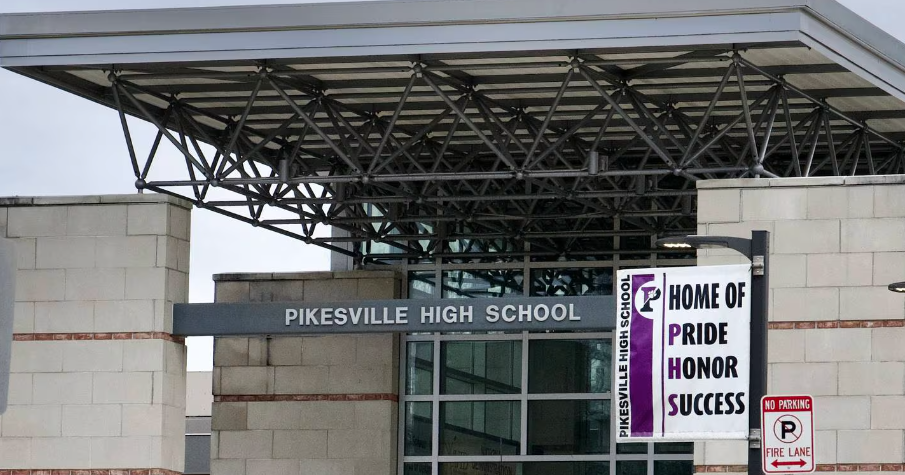A Rising Democratic Star Told His Origin Story. But Did He Allow A Narrative To Take Hold That Didn't Match The Facts?
(CNN) -- Wes Moore, a leading Democratic candidate for governor of Maryland, first became famous for his 2010 bestselling memoir, "The Other Wes Moore," an inspirational story of two boys with the same name and ties to the rough streets of Baltimore.
While the author became a Rhodes scholar, an Army captain and a White House fellow, the other Wes Moore was convicted of killing a police officer in 2000 and is serving a life sentence in prison.
The book is required reading in many schools in Maryland and across the country, and it fixed Moore in the minds of many as a proud son of Baltimore. It also helped launch his successful career in media and philanthropy. Moore has since written more books, hosted his own TV show on the Oprah Winfrey Network and spent four years as CEO of the Robin Hood Foundation, New York City's largest anti-poverty non-profit.
Now Moore is seen as a potential up-and-comer in Democratic politics. He's one of the leading primary candidates in a state where the party's nominee would be heavily favored to win the governor's race -- and, potentially, to rise as a national political figure.
But as he's entered politics, Moore's story has come in for a closer examination.
While his book lays out the basic details of his life factually, a less accurate version of his Baltimore roots has taken on a life of its own, fueled by more than a decade of assertions by other people in TV interviews that he is a Baltimore native, born and raised in the city.
At times, Moore has fed that impression himself. For example, he has repeatedly said that he originally wanted to call his first book "Baltimore Sons." Other times, he made ambiguous statements about his childhood connections to Baltimore or, in high-profile settings, sat by quietly as others repeated erroneous details.
Now Moore's story has become the subject of conversation in the race. His campaign last week sent a letter to the Maryland state prosecutor and the state board of elections, alleging that "false and disparaging information" had been spread about Moore in "an orchestrated attempt" to disparage him. The letter goes on to allege that "a rival campaign may be responsible for this smear campaign."
The same week, the campaign launched a website, FactsMD.com about Moore's childhood and connections to Baltimore.
In checking out those facts, CNN reviewed dozens of Moore's public appearances and writings of the past 12 years, as well as other records. What that effort reveals is a complicated story of race, identity and the responsibility of public figures to control their own narrative.
According to Moore's website, he wasn't born in Baltimore but in Washington, DC. As the book lays out, he spent his early childhood in the suburb of Takoma Park, Maryland, some 30 miles from Baltimore. After his father's sudden death when Moore was 3 years old, he then moved with his family to the Bronx, which at the time was beset by crime, drugs and poverty -- much as Baltimore was in the 1980s and 1990s.
Late in the summer before he turned 16, Moore's mother moved to the middle-class enclave of Pasadena, in Maryland's Anne Arundel County. But by then Moore was away at military school in Pennsylvania. Moore's campaign says that when he would visit his mother as a kid, he would often go roller-skating and get his hair cut in Baltimore.
It wasn't until he was a 20-year-old undergraduate student at Johns Hopkins University that Moore first lived in Baltimore. Even then, as a student at Johns Hopkins, the world he inhabited while attending a prestigious private university was nothing like the notorious inner-city housing developments of Baltimore where the 2010 book says the other Wes Moore grew up.
Though Moore's book never explicitly asserts he was born in Baltimore, it does allude prominently to his strong association with the city. The book opens with the line, "This is the story of two boys living in Baltimore with similar histories and an identical name." Later in the same introduction, Moore writes, "We'd grown up at the same time, on the same streets, with the same name."
More than one interviewer referred to Moore as born in Baltimore, including Winfrey. A spokesperson for Winfrey told CNN the producers of their 2016 interview had relied on information in the published memoir in crafting her introduction.
Now that the campaign is underway, those closest to Moore describe a genuine connection to Baltimore, where he has lived for about the last decade.
"I've never seen anyone connect to a place more than Wes did when he fell in love with Baltimore," his mother, Joy Moore, said in a statement provided to CNN by the Moore campaign. "My job was in Baltimore City, and I couldn't keep him out of the city when he was home from military school as a teenager."
"Baltimore is where Wes came of age," she said, "and he has built and fostered a community in Baltimore for over 25 years since he was 15 years old."
In response to questions from CNN, the Moore campaign declined to make the candidate available for an interview and directed CNN instead to answers provided on the FactsMD.com website.
"This attempt to put Wes Moore's childhood trauma under a microscope neatly aligns with blatant dog whistles and other mischaracterizations of Wes' childhood that have been circulating for months and that are now the subject of a criminal investigation by the State Prosecutor's Office," a Moore campaign spokesperson said in a written statement to CNN.
Contacted by CNN, the state prosecutor declined to comment.
Asked about the Moore campaign's complaint letter, Maryland Board of Elections director of candidacy Jared DeMarinis said, "We review every complaint, and this is no different from any other complaint we receive in the course of an election."
The story morphs over time
The question of where Moore grew up has been complicated by more than a decade of public promotion and hype that has surrounded his up-from-the-streets story.
Within weeks of the 2010 publication of Moore's first book, he was on The New York Times nonfiction bestseller list and on a high-profile media book tour that took him through, among others, "The View," "PBS NewsHour," "Morning Joe" and "The Colbert Report."
Moore didn't object when others asserted that he and the other Wes Moore were from the same part of Baltimore. In a May 2010 PBS interview, Moore walked under umbrellas in the rain with Judy Woodruff, telling her, "These were areas that we knew. These were blocks that we knew."
They passed the intersection of Kennedy Avenue and The Alameda, which is about 25 miles from Moore's mother's house in Pasadena, and 1.8 miles from the Hopkins campus.
Woodruff introduced him as "Baltimore native Wes Moore," speaking from the studio to introduce the piece before cutting to footage of them walking down the street together in Baltimore.
Asked about the segment, Woodruff told CNN she'd found the copy of "The Other Wes Moore" that she'd read ahead of the interview and had cited lines like that first sentence, "This is the story of two boys from Baltimore with similar histories and an identical name," and a headline that is included from The Baltimore Sun, "Local Graduate Named Rhodes Scholar." (Though not identified as such in the book, the article had run on the front page of the paper's Anne Arundel County section in December 2000.)
Many of Moore's interviews featured the same anecdote of how he had first learned about the other Wes Moore: It was his junior year of college and he was studying abroad in South Africa when his mother called with surprising news. "'There are wanted posters all over your neighborhood for Wes Moore, for the murder of a police officer,'" he said she had told him.
"You were haunted by the fact that a guy with your name, grew up in the same neighborhood, a couple of blocks away, a lot of similarities, but you end up working in the White House, and he ends up in jail," MSNBC's Joe Scarborough responded, as Moore listened contentedly, making no correction.
A month and a half later, on his old Comedy Central show, Stephen Colbert stopped Moore at one point in his storytelling.
"This is your neighborhood back home?" Colbert asked.
"Yeah. This is the same neighborhood," Moore said.
"Where was this neighborhood?" Colbert asked.
"It was in Baltimore," Moore said.
The Moore campaign declined to answer CNN's questions about television appearances.
Moore's origin story drives his rise to celebrity
The runaway success of "The Other Wes Moore" launched Moore into an elite circuit of influence and paid appearances. He was a regular panelist on "Morning Joe" and HBO's "Real Time with Bill Maher." He was invited to give commencement speeches and was popular on the paid speaker circuit off a bio that introduced him as "raised in Baltimore."
During the Obama administration, Moore was invited to the White House several times, and he received an Obama presidential appointment to a community service board.
By 2016, Moore was walking arm in arm with Winfrey in a video for her "Super Soul Sunday" series, talking about his second book, "The Work." Winfrey introduces the segment with a series of voice-overs.
"Born in Baltimore in 1978," she starts.
"He discovered there was another young man, also named Wes Moore, who grew up just blocks away from his own childhood home," she says a few seconds later.
The next year Moore got a high-profile job in philanthropy. In April 2017, he was named CEO of the Robin Hood Foundation, a non-profit that raises hundreds of millions from New York's investment bankers and hedge funders.
Robin Hood sees itself as essentially New York's community foundation, with all of its programming locally based. People familiar with the search process told CNN that Moore's roots in the Bronx had helped land him the job. Indeed, the Robin Hood news release announcing his hiring notes that "he spent much of his childhood in the Bronx." There's no mention of being from Baltimore at all.
Soon, in the official bios Moore was sending around as CEO for appearances from Princeton's department of African American studies to the BlackRock investment firm, that shifted again: "Wes grew up in Baltimore and the Bronx," it reads.
The brand becomes a campaign
When news started spreading in the winter of 2021 that Moore was considering a run for governor, a February 2021 Baltimore Sun headline read, "Baltimore-born author and educator Wes Moore considering running for Maryland governor."
Moore left the Robin Hood Foundation last spring and announced his campaign for governor a few weeks later.
As he prepared to launch a political career, there are signs that efforts were made to correct the record. Last June, three days before he entered the race, Moore's personal website was edited, with changes removing a reference to "back home in Baltimore." That same day, a Wikipedia user changed Moore's listed birthplace from Baltimore to Takoma Park, citing the change back to his personal website.
In his campaign launch video, a young actor plays Moore as a boy, at an age when he was living in the Bronx. Though the street featured in the shoot is not identified, the scene immediately cuts to the Baltimore skyline.
In the months since announcing his candidacy, Moore has gained traction despite competing in a crowded primary field.
On April 2, Moore overwhelmingly won the backing of the state teachers' union, a major endorsement in the race. In his speech to members, he talked about how many classes he'd been to with students who had read his book and connected with his story. The Baltimore public school system placed an order for 4,600 copies of "The Other Wes Moore" in 2020 alone.
Among the defenses the Moore campaign includes on its FactsMD website is that Moore asked his publisher, Random House, for a correction ahead of the book's publication and again as he was preparing his campaign. "Some versions of the book synopsis of THE OTHER WES MOORE inaccurately identified Wes Moore as born in Baltimore. Flagged by the author at the time, a correction to the copy was missed upon its initial publication," a statement attributed to Random House on the website states. "When notified again of the error early last year, Random House corrected all subsequent print runs of the book."
The publisher confirmed that statement but did not answer follow-up questions from CNN about it.
In his second book, "The Work," published in 2015, Moore also referred to spending nights in Baltimore as a child. "As a kid in Baltimore and the Bronx during the homicidal height of the so-called crack era, I would lie in bed on some nights and listen to the pop of low-caliber guns somewhere beyond my window," he wrote.
The Moore campaign declined to discuss specific questions about this memory or to make Moore available to talk about it.
Just a few months before launching his campaign, in a video chat with members of his old college back at Oxford in January 2021, Moore sat quietly as two different professors introduced him by mentioning his Baltimore roots, one by saying, "born in Baltimore, well-known by anyone who's seen 'The Wire.' "
Baltimore as a backdrop
For some in Baltimore, it's OK for suburban residents to claim the city as home.
Carl Stokes, a former Baltimore city council member, said he had met Moore two decades ago after a college professor introduced them. They met for lunch at the Hopkins Club on campus, Stokes said, and Moore talked about his connections to the wider area back then.
"It's close enough that I don't think it's that unusual to say they're from the next big place," said Stokes, who is now supporting state comptroller Peter Franchot in the governor's race.
"If you dig deeper, they'll say, 'Actually, I was out from the suburbs,' " he said.
But other residents see it differently.
Hassan Giordano, a Baltimore native and Democratic political media consultant who is not backing a candidate in the governor's race, said he's known Moore for a decade and that he's impressed with Moore's other qualifications. But he called the account of Baltimore roots "really disingenuous."
Asked by CNN if he'd consider the time Moore cites during his teen summers as "coming of age" in Baltimore, Giordano said, "Hell, no."
"That's not growing up in Baltimore, that's visiting Baltimore. That's being here for the summer," Giordano told CNN.
"I think that most people from Baltimore would tell you that it gets under their skin to hear someone say that they're from Baltimore, even if they're from Baltimore County or the Baltimore area," Giordano said.
Munir Bahar, a longtime community activist in Baltimore who told CNN he doesn't have a favored candidate in the governor's race, said that when he had first met Moore after the 2015 riots following the death of Freddie Gray, he had thought the candidate was from the city.
When told by CNN that Moore's campaign describes him as being raised in Baltimore based on his summers visiting from Pasadena, Bahar said, "That's definitely not being raised in Baltimore. That's not the Baltimore experience," adding, "As a young Black boy growing up in Baltimore, you can't use that as a platform unless it's really authentic, especially in the '90s and 2000s. Everybody wants to use Baltimore as a backdrop."
The-CNN-Wire
™ & © 2022 Cable News Network, Inc., a WarnerMedia Company. All rights reserved.



